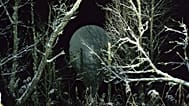The European Court of Justice has ruled that member states must recognise same-sex marriages lawfully concluded in another member state. The decision is poised to be greeted positively by Europe's LGBTQ+ community.
Countries of the European Union must recognise a same-sex marriage lawfully concluded anywhere in the bloc, even if their domestic legislation does not provide for it, the European Court of Justice said in a ruling on Tuesday.
Refusing the recognition of a lawful marriage is "contrary to EU law because it infringes that freedom and the right to respect for private and family life", the judges said, and "may cause serious inconvenience at administrative, professional and private levels, forcing the spouses to live as unmarried persons."
The case involves two Polish citizens who married in Berlin in 2018 and then returned to Poland, where they requested that their German-language marriage certificate be transcribed into the Polish civil register for recognition.
The request was refused because Poland does not allow same-sex marriage.
The couple challenged the decision to the Polish Supreme Administrative Court, which referred the matter to the ECJ in Luxembourg. On Tuesday, the judges ruled the matrimony was valid throughout the 27-member bloc.
"The spouses in question, as EU citizens, enjoy the freedom to move and reside within the territory of the member states and the right to lead a normal family life when exercising that freedom and upon returning to their member state of origin," they said.
"When they create a family life in a host member state, in particular by virtue of marriage, they must have the certainty to be able to pursue that family life upon returning to their member state of origin."
The judges note that their decision does not compel member states to amend their domestic legislation to recognise same-sex marriage, instead obliging them to recognise marriages lawfully concluded in another EU country.
The procedure must be applied "without distinction" or additional hurdles.
As of today, more than half of the 27 member states recognise same-sex marriage. The Netherlands made history in 2001 by becoming the first nation in the world to do so.
Others recognise same-sex civil unions, but Poland currently does not, despite an attempt by Prime Minister Donald Tusk to strengthen LGBTQ+ rights in the country.















